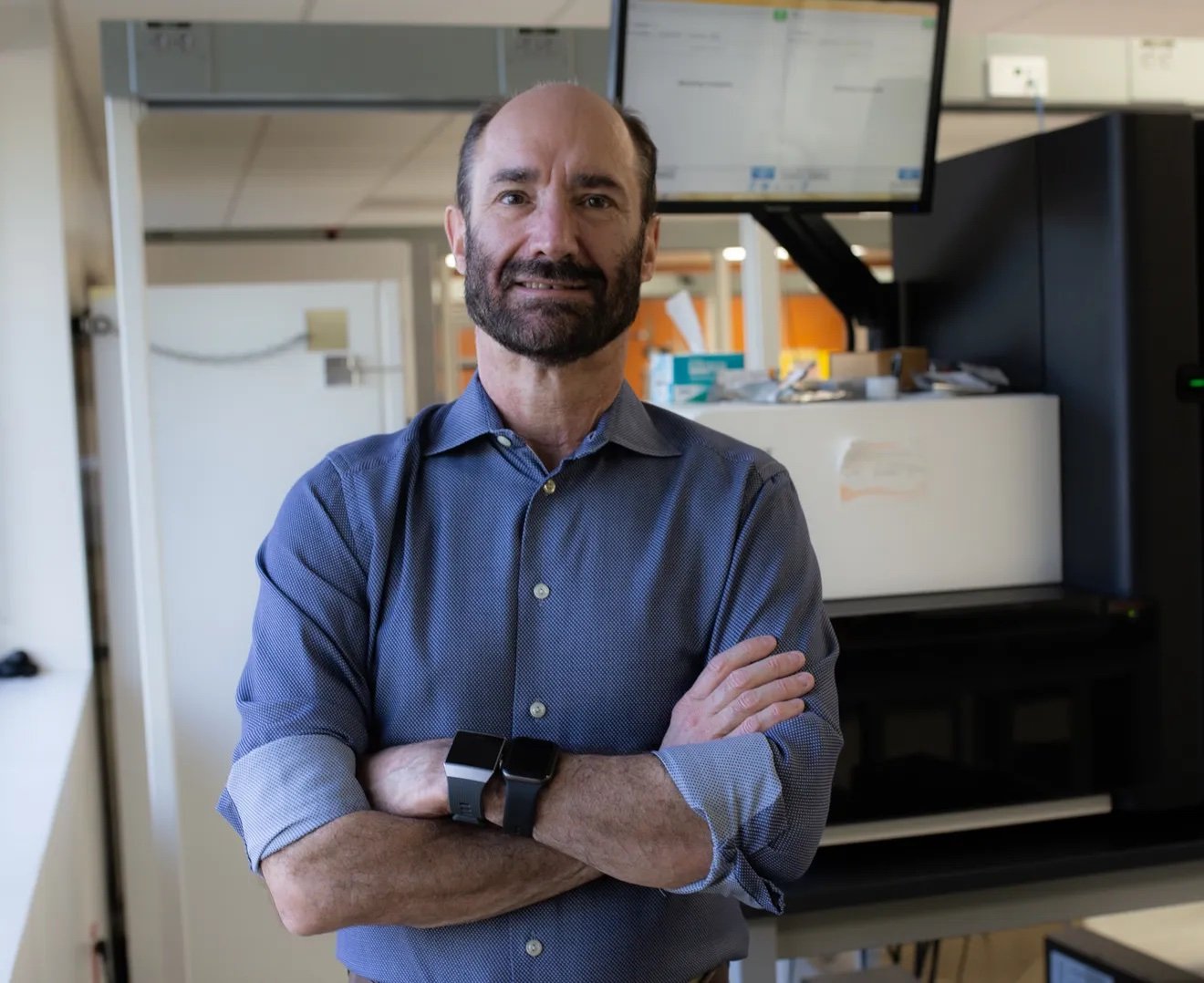Stanford dropout Elizabeth Holmes’ Theranos promised a revolution in blood testing that never came.
Now, in a research paper published Thursday, Stanford researchers say they’ve accomplished what Theranos was unable to do: they’ve developed a new approach that can measure thousands of molecules with about one drop of blood.
Genetics department chair and senior author Michael Snyder said his lab has combined a microsampling device with multi-omnic technology, a biological analysis approach, to measure thousands of molecules from 10 microliters of blood (about a single drop).
“I call it ‘Theranos that works,’” Snyder said. “Medicine is very antiquated; now, you go to a physician, they draw lots of blood, they measure 10 to 15 things. What we’re trying to do is measure thousands of molecules so we get a much clearer picture of what’s going on.”
Snyder continued, explaining the capabilities of their research, “We can follow your metabolic markers, your immune markers, even some neurological markers that can give insights into your mental health.”
It’s a bold claim, but one that Stanford medicine professor John Ioanndis, who was one of the first to publicly question Theranos in a column for the Journal of American Medicine Association, says has scientific backing. Ioanndis is not affiliated with Snyder’s study.
“Theranos was infamous for their stealth mode of doing science,” he said. According to Ioanndis, a major difference between this research and Theranos is that this paper has been peer reviewed and vetted by other scientists.
Currently, blood testing typically requires 10 to 15 milliliters of blood. The research team tested many microsampling devices to try to reduce the amount of blood used for analysis, ultimately selecting the Mitra, a portable device that can be used for remote specimen collection.
From there, they tested multiple extraction techniques to effectively measure the lipids, metabolites and proteins, as well as inflammatory markers. After comparing their findings with conventional blood testing methods, they found that their microsampling yielded accurate results.
“Traditional blood samples are very painful,” said Xiaotao Shen, a postdoctoral scholar in genetics and one of the four lead authors on the paper. “Through this method, we can get reports from people about their nutrition. We can see people having different responses to food. We can get a lot of data from only 10 microliters.”
One individual’s life has already been changed by this research: Snyder himself. Snyder learned that there was an inverse correlation between his caffeine levels and his sleep, leading him to cut back on caffeine and improve his sleep.
“It’s really going to change things,” Snyder said. “You get a much more accurate measurement of people’s markers.”
While there are similarities between this research and what Holmes claimed Theranos could do, there are many differences that suggest this study has more legitimacy to it than the now-defunct startup.
“Theranos was saying, ‘I will disrupt healthcare, I will change clinical practice, I will change the way that medicine is done,’” Ioanndis said. “This research is still preliminary. There needs to be many other studies before I can say that this is something that you can take to medical care application.”
Also, unlike Theranos, the data from this study is widely available for the public to look at. “We’re one of the few groups that does make all of our data available,” Snyder said. “We’re trying to be as transparent as possible.”
Since the completion of the initial study, Snyder and his lab are running more studies on this research. “We can now measure samples from thousands of people pretty easily,” Snyder said. “We can do larger studies now. We can also do very detailed studies that we couldn’t do before.”
While Holmes claimed her technology could detect early stages of cancer, Snyder’s method is not quite at that stage — although one day it may be able to, according to Snyder and Shen.
Since the development and findings of this paper, Snyder has spun his research out into two new companies: Rhythm, a chronic condition company that is trying to find markers for better diagnosis and treatment of COVID-19 and chronic fatigue syndromes, and Iollo, which will provide wellness profiles for patients from 650 molecules in one’s blood.
“What we’re doing right now is a research project,” Snyder said. “Even though we are entering a commercial side, there’s still more to be done. It’s all part of our vision to try and transform medicine.”
